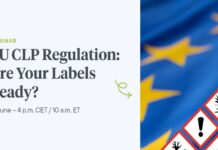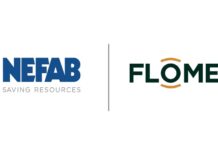The beverage industry is apprehensive that the European Commission’s proposed plan on packaging legislation will be misdirected in emphasising their industry almost completely on reusable packaging at the expense of recycling programmes, as opposed to having a holistic strategy incorporating both.
The beverage sector, which includes beer, cider, fruit juice, natural mineral water, and soft drinks, has led the way in the development of environmental sustainability. By minimising, recycling, and reusing the beverage packaging, they are firmly dedicated to fostering a circular economy. Almost every company faces a challenging task such as this.
The beverage industry supports efforts to boost reuse. It should be a component of the EU’s plan to decrease packaging waste, but it should also complement existing and future initiatives to reduce and recycle packaging and allow for flexibility in response to shifting local conditions and new research.
The beverage industry is therefore extremely concerned that the European Commission’s draught proposal for a revised version of the EU Packaging and Packaging Waste Directive (PPWD) might define reusable packaging as essentially their only route towards circular packaging, singling out the sector and creating a drastic and discriminatory new path for their beverages.
Recycling unintended implications
This strategy will be terrible for all currently operational recycling systems as well as firms in the sector. To achieve circularity in their packaging, significant investments from the past must be reduced or reversed. In the end, it will lengthen and complicate the road toward greater environmental sustainability, with no assurance of success.
Reuse and recycling are two ways to accomplish the same thing. Compared to the status quo, both can contribute to packaging circularity, a decrease in the use of virgin materials, and a smaller environmental impact. Reuse shouldn’t be promoted a priori at the expense of recycling, especially since the proportional environmental impact depends on a variety of conditions. While there are some circumstances and settings where reuse is preferable and even effective, it does not always outperform recycling. Impact analyses have not proven that universally high reuse objectives will have a positive environmental impact in all circumstances and for all types of packaging. Context is crucial.
The resources needed to make reusable packaging, the degree to which consumer behaviour will change to ensure that the containers are actually used again, the carbon footprint associated with transporting returnable bottles and crates, and the energy required to wash packages before reuse are just a few of the factors that come into play when evaluating the environmental impact of reusable beverage packaging. Impacts will vary depending on the category. For instance, laws requiring natural mineral water to be bottled at the source restrict production and logistics options.
Let’s ensure that the beverages compete on an equal footing
If the European Commission’s proposals just call for reuse goals for the beverage sector, it would be both discriminatory and completely dismiss all the ground-breaking circularity initiatives the industry is presently doing.
It would be incomprehensible and inappropriate for the beer and cider sectors to automatically offer exemptions to the other alcoholic beverage sectors when it comes to establishing reuse targets and standards for beverages.
Avoiding using additional virgin materials
Overly ambitious reuse goals could, in some situations, result in a rise in the supply of virgin materials on the market, especially during the transitional period. To stock the sector, much more substantial, reusable drinking containers that can withstand numerous trips through the reuse chain will be required.
The efficient return of packages by both customers and retailers can cause logistical bottlenecks in reuse systems. While companies wait for the containers to return, more packages are required to fill the gap, necessitating the need for additional raw materials for their manufacturing.
Metal cans, which are the preferred container for many small producers and for consumption on-the-go, are eternally recyclable, but they do not yet come in a reusable form. If excessively high reuse goals are to be met for all forms of beverage packaging, other materials would have to be used to replace them.
A severe economic setback for thousands of businesses
Overly aggressive reuse objectives might financially bankrupt thousands of businesses in the sector; therefore, policymakers need to understand this. For many producers, especially SMEs, meeting new reuse standards requires not just a small tweak but a total transformation of their business strategy and production methods. For instance, a PwC study commissioned by UNESDA indicated that EU soft drink producers would have to spend €19 billion in order to reach a market share of 20% for reusable PET bottles by 2030.
SMEs do not have the capacity to commit to such significant investments in such a short amount of time, especially given the pressures of inflation and rising energy prices. In the industry, there are hundreds of SMEs that operate just one packaging line and sell locally, frequently in rural areas. In nearby communities, thousands of jobs are at risk.
Even if this were the only path to sustainable packaging, it would still be a terrible pill to swallow to attack the industry in such a discriminatory, unequal, and inappropriate manner. Though it isn’t. The Commission’s draught strategy now calls for the industry to focus exclusively on one legislative initiative while neglecting the advancements achieved in recycling and the efficacy of many of the mechanisms already in place to gather and recycle the packaging. It doesn’t seem right.
You must have the appropriate kind of ambition
They do not support a lack of ambition. In actuality, the reverse is true. They are pioneers in the marketing of sustainability and strong supporters of the EU Green Deal’s founding principles: bold, fact-based policy changes that promote environmental sustainability while also fostering economic growth and job creation.
They are aware that combining reduction, reuse, and recycling is effective. There are other options besides reusable beverage packaging. Based on the fusion of all feasible options, there is a superior route that has already resulted in the circularity of the beverage packaging. It shouldn’t be disregarded. As a result, they anticipate a positive and sensible recommendation from the European Commission.

























